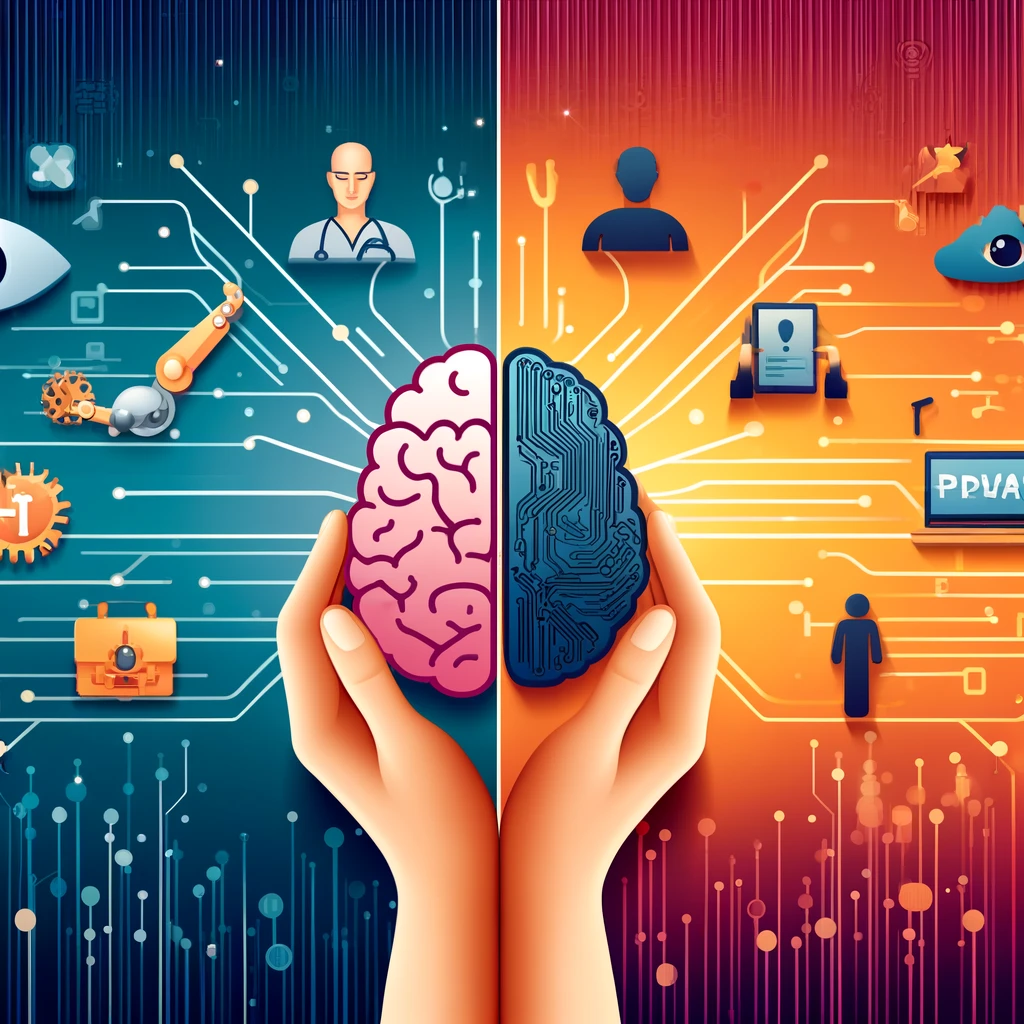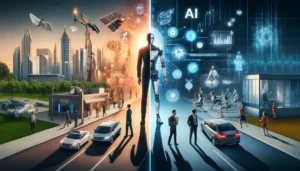
The role of Artificial Intelligence (AI) in our lives is expanding rapidly, touching almost every aspect of our daily activities, professions, and industries. Below, we examine the various pros and cons associated with AI’s ever-growing presence.
Pros of AI:
- Efficiency and Automation: AI systems excel in performing repetitive and monotonous tasks, enabling humans to focus on creative and strategic activities. This can lead to increased productivity in various sectors, including manufacturing, administration, and even creative industries.
- Enhanced Decision Making: AI can process vast amounts of data far more quickly and accurately than humans, providing valuable insights and aiding in more informed decision-making. In sectors like healthcare, finance, and disaster response, these capabilities can lead to better outcomes and more efficient resource allocation.
- Innovation and Improvement: AI drives innovation across numerous fields, from drug discovery and personalized medicine to renewable energy and conservation strategies. It fosters advancements that can improve quality of life, enhance sustainability, and even tackle global challenges.
- Personalization and Convenience: AI powers personalized experiences in entertainment, shopping, and services, catering to individual preferences and improving user satisfaction. It also underpins convenient features like voice assistants, personalized news feeds, and tailored recommendations.
- Accessibility and Assistive Technologies: AI enhances accessibility for individuals with disabilities, offering assistive technologies that improve communication, mobility, and daily living, thus fostering greater inclusion and independence.
Cons of AI:
- Job Displacement: One of the most significant concerns is the potential for AI to automate jobs, leading to displacement of workers, especially in industries reliant on routine tasks. This could exacerbate unemployment and require significant workforce reskilling.
- Privacy Concerns: AI systems often rely on large datasets, including personal information, raising concerns about privacy and data protection. Misuse or breaches of this data could have severe implications for individual privacy rights.
- Bias and Inequality: AI systems can inherit and amplify biases present in their training data, potentially leading to unfair or discriminatory outcomes. Moreover, unequal access to AI technologies can widen the gap between different socio-economic groups.
- Dependence and Skill Erosion: Over-reliance on AI can lead to erosion of critical skills, as individuals may become overly dependent on automated systems for decision-making, problem-solving, and even basic tasks.
- Security and Ethical Risks: As AI systems become more integrated into critical infrastructure and defense systems, they pose new security risks, including vulnerabilities to hacking and misuse. Additionally, ethical concerns, such as the autonomy of AI systems and the potential for malicious use, raise significant debates.







